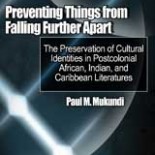SORAC 2010: Call For Papers: “Conflict and Conflict Resolution in Africa: History, Myths and Realities”
SORAC 2010 Three-Day International Conference
Conflict and Conflict Resolution in Africa: History, Myths and Realities
October 7, 8 and 9, 2010 Montclair State University
View: Conference Program
View: Directions & Hotel Information
View: Registration & Membership Information
In November 2006, the Department of Modern Languages at Montclair State University hosted a talk by a Rwandan exile on the theme of “Going Beyond Hotel Rwanda: Understanding Ethnic Conflict in Africa.” What transpired from this talk was the inability for the Rwandans in attendance to agree on a definition of who they were as a people, and how it came to be that they were at one another’s throats, seeking to lay the blame of their genocide(s) on one another instead of attempting to find a common discourse on how to proceed from here. From this divisive (as opposed to constructive) display of African ethnic politics on an American campus, SORAC derived the need to hold an international event that would go beyond Rwanda and look deeper into the history of conflicts and wars in Africa with a view to clarifying the notions of conflict and conflict resolution not only within the context of African culture(s), but also within the framework of African history itself as shaped by its indigenous as well as exogenous forces.
Looking at Africa today, especially after the recent unexpected outburst of political strife and violence in Kenya and the DRC, it appears as though the continent has become, in the minds of many around the world, synonymous with all that is wrong with humanity. Genocides, wars, tribal strife, disease and humanitarian disasters seem to have taken, therein and in the minds of many outsiders, a coloration that has reinforced the multifarious stereotypes about Africa as a continent of misery, tribal wars and chaos. Numerous questions do indeed come to mind when looking at the issue of conflict in Africa, namely: What is conflict and how do Africans define, describe and/or understand conflict? What are the causes of conflict in present-day Africa, and what were these causes in pre-Muslim and pre-Christian Africa? How have Africans dealt with conflicts in their pre-Muslim and pre-Christian past, and how have they dealt with them in their Muslim and Christian present? What does/did conflict resolution mean in the African context? Are/were there any principles of conflict resolution in African cultural ethos? Have any such principles been successfully implemented at some point in the past and/or present of Africa? Is/was there a philosophy of conflict and conflict resolution in African culture(s)? How does/did it manifest itself? Are present-day conflicts on the continent due to an inherent flaw in African culture(s) or have there been too many simplifications in past and present understandings of conflict in Africa? The questions are too many to list here, and the issues vast.
In order to begin an intellectual discussion of these complex issues, SORAC calls for papers that would explore the themes of conflict and conflict resolution in Africa from a variety of perspectives (historical, literary, political, etc.) and disciplines (humanities, social sciences, diasporic studies, etc.). It is expected from participants at SORAC 2010 that they will, from their own disciplines and perspectives, help to illuminate not only the historical/chronological dimensions of conflicts in Africa from ancient times to present, but also their cultural dimension, especially as they pertain to the relationship between conflict and conflict resolution within the African context. Interesting will also be approaches that will look at the links between Africa and black people of the African diasporas around the world. As far as the African diasporas are concerned, questions of interest could be: What historical as well as cultural relationships can be established between the African spirit still alive in such diasporas and their embattled (and non-embattled) situations in their new cultural universes? What psychological and cultural ambivalences/crises have resulted from their diasporic estrangement? What types of relationships and ambivalences have defined their ties with the African continent, and informed the socio-cultural and political interactions within their own communities?
Sample perspectives from which the participants will seek to approach the themes of the SORAC 2010 international conference are:
Historical/Chronological
-
– Wars and Conflicts in Ancient Africa
-
– Ancient Egypt and Africa in Ancient Times
-
– Africa in The Middle Ages
-
– Pre-Islamic Africa and Pre-European Africa
-
– Islamic and Colonial Africa
-
– Post-Colonial Africa
-
– Ancient Migrations and Population Movements
-
– Wars of Liberation and Wars Independence in Africa
-
– Etc.
Cultural/Philosophical/Religious
-
– Concepts of Sin
-
– Concepts of Crisis, War, Conflict, Offense, Etc.
-
– Concepts of Peace, Reparation and Conflict Resolution
-
– Concepts of Crime, Prosecution and Punishment
-
– Gender Conflicts
-
– Religious Conflicts
-
– Cultural and Religious Identity
-
– Cultural and Religious Proselytism
-
– Conciliation and Reconciliation
-
– Concepts of Brotherhood and Enmity
-
– Concepts of Violence and Conquest
-
– Taboos and Concepts of The Taboo
-
– Concepts of Shame and Humiliation
-
– Conflicts of Generations
-
– Islam and Christianity in Africa
-
– Religion and Conflict
-
– Etc.
Art and Literature
-
– Literary Representations of Conflict in Africa (Individual, Personal, Interpersonal, Social, Ethnic, Interethnic, Gender, etc.)
-
– Artistic Representations of Conflict N Africa (Individual, Personal, Interpersonal, Social, Ethnic, Interethnic, Gender, etc.)
-
– Etc.
Social/Economic/Political
-
– Property and Property Rights
-
– Land and Land Rights
-
– Government and Law
-
– Sources of Conflicts
-
– Civil War, Wars of Rebellion, Insurrections
-
– War Technology and Strategy
-
– Genocide and Concepts of Genocide
-
– Concepts of The State, Army, Police
-
– Concepts of Chaos and Order
-
– Myths and Legends of Origin
-
– Concepts of Race, Ethnicity and Identity
-
– Trade and Conflict
-
– Trade and Culture
-
– Polygamy, Marriage and Marriage Rights
-
– Parental Rights and Expectations
-
– Concepts of The Foreign and of The Indigenous
-
– Concepts of Power, Democracy and Despotism
-
– Modes, Means and Systems of Government
-
– Modes, Means and Systems of Production
-
– African Notions of State and Government
-
– Slavery and Servitude
-
– Refugees, Exiles and Displacements
-
– Disease, Famine and Poverty
-
– Present-Day Migrations
-
– Arab Vs. Black in Africa
-
– North Africa Vs. Sub-Saharan Africa
-
– Class and Class Struggle
-
– Africa in The Era of Globalization and Multinational Capitalism
-
– Etc.
Diasporic/International
-
– Foreign Perceptions and Representations of Conflict in Africa
-
– Diasporic Perceptions and Representations of Conflict in Africa
-
– Expatriate Perceptions and Representations of Conflict in Africa
-
– Race and Class in The Americas
-
– Race and Class in Europe
-
– African Representations of Conflicts in The Americas, Europe, and The World
-
– Racism and Segregation
-
– International Migrations
-
– Notions of Race and Culture
-
– Perceptions of Africa in Relation to Slavery
-
– Etc.
Case Studies
-
– Genocide(S) in Rwanda and Darfur
-
– Wars and Conflicts of Secession (Casamance, etc.)
-
– Apartheid and Resistance in South Africa
-
– Etc.
U.S. – Africa Relations
- – US-Africa Security Relations
- – US Foreign and Military Policy Towards Africa
- – AFRICOM (US Africa Command), the U.S. and Africa
- – America and The War On Terrorism in Africa
Projections and Perspectives
-
– What Wars and What Conflicts For Africa in The Future?
-
– Positive and Negative Contributions of War in Africa
-
– Africa in The 21st Century
-
– What Future For Africa in General?
Disciplines
History, Anthropology, Sociology, Ethnology, Archeology, Egyptology, African Studies, African-American Studies, Literature (African Literature, African American Literature, Black Literature, Diasporic Literatures, etc.), Post-Colonial Studies, Classical Studies, Biblical Studies, Philosophy and Religion, Political Science, Military and Weaponry, etc.
This list of potential areas of exploration is not exhaustive. If you wish to submit a proposal and you are not sure if your paper would be appropriate for this conference, send us your abstract anyway and we will let you know. You may print the MS Word call for paper from on this link.
Deadline for Submission/Receipt of Abstracts:
If you propose to present a paper at SORAC 2010, either individually or as a panel, we must receive your abstract or proposal by August 30, 2010.
Abstract Requirements:
Submit a 200 words abstract summarizing the content/theory/rationale of your presentation. Acceptance notices will be sent out to submitters as abstracts are received and processed. Speakers will be given 30 minutes for their talks, including question time, for their talks. See specific abstract-submission requirements on our Rules, Guidelines and Requirements page.
Submission of panel proposals and themes is welcome. See specific abstract-submission requirements on our Rules, Guidelines and Requirements page.
– Include your contact information and institutional affiliation with your abstract (address, title, university or institution, phone, fax, email, etc.)
– Acceptance notices will be sent out to submitters as abstracts are received and processed. This process may take up to 30 days, so submit your abstract well before the deadline of August 30, 2010.
Abstracts May Be Submitted By:
-
Post Mail: You may use our Interactive SORAC 2010 Paper/Panel Proposal Form (MS Word version) to submit your paper and/or panel proposal. The form is interactive and can be typed into, saved and printed. If sending by Post Mail, send us your abstract in the form of both a computer CD-ROM and 3 hard copies (Microsoft word or WordPerfect) of your abstract. Mail your abstract to: Dr. Daniel Mengara, Executive Director SORAC, Department of Modern Languages and Literatures, Montclair State University, Montclair, New Jersey 07043 (USA). Check our Web site regularly for updates on SORAC 2010 at: http://www.soract.net/.
- By Email: You may submit your paper proposal by email. For this, use our Interactive SORAC 2010 Paper/Panel Proposal Form (PDF version). The form is interactive and can be typed into, and saved. After saving the form, you can send it to us as an attachment using our contact form.
Be sure to provide an email address that you consult often, as all follow-ups regarding SORAC 2010, as well as all notices will be send via email communication. The call for papers is available here.
Visit our Rules, Guidelines and Regulations page for more details on abstract, paper, and panel submissions, as well as general requirements regarding participation at the SORAC 2010 conference.
Registration Fee & Procedures:
-
– Pre-Registration : For planning purposes, we ask that you (accepted speakers as well as attendants) register early (pre-registration) for the conference (and banquet) by returning our SORAC 2010 Registration Form, along with the pre-registration fee, by the early-birst date of July 31, 2010. Mail your form and fee to: Dr. Daniel Mengara, SORAC, Department of Modern Langauges and Literatures, Montclair State University, Normal Avenue, Montclair, New Jersey 07043. Make Checks Payable to: SORAC/MSU.
-
– Accepted Speakers and Presenters must be active SORAC Members AND pre-register for the Conference by the early-bird date of July 31, 2010 deadline. (see membership information here.)
The registration fees for this conference are based on three registration windows. These are as follows:
Registration Types & Windows:
Only members in good standing can present papers and panels
(15% member discounts already applied below). MSU employees do not need to be members to present papers.
| Registration Status Important: Early-Bird/Pre-Registration recommended |
Early Bird By July 31, 2010 |
Late Bird Aug. 1-Oct. 6 |
On-Site Oct. 7, 8 & 9 |
| Members (Presenting) | $85 (Full Event) | $105 (Full Event) | $125 (Full Event) |
| Members (Not Presenting) | $50* (Full Event) | $65 (Full Event) | $85 (Full Event) |
| Student Members (Presenting) | $50* (Full Event) | $60 (Full Event) | $70 (Full Event) |
| Student Members (Not Presenting) | $40* (Full Event) | $50* (Full Event) | $60 (Full Event) |
| Students (Non-Members) | $60 (Full Event) | $75 (Full Event) | $85 (Full Event) |
| Students (Non-Members) | $25* (Day Pass) | $25* (Day Pass) | $25* (Day Pass) |
| Non Members | $100 (Full Event) | $125 (Full Event) | $150 (Full Event Pass) |
| Non Members | $40* (Day Pass) | $40* (Day Pass) | $40* (Day Pass) |
| MSU Members | FREE* (Full Event) | FREE* (Full Event) | FREE* (Full Event) |
| * Banquet meal not included. Additional Fee of $20 applies for Banquet meal. | |||
All registration fees paid include the Banquet/Keynote Address Dinner and Ceremony on Friday night. Attendance at conference sessions is free for Montclair State University members (Faculty, Students, Staff, etc.). However, MSU members must pay the dinner fee of $20 to attend the Banquet/Keynote Address Dinner and Ceremony. Make all checks (U.S. Checks only) or money orders (U.S. or Canadian money orders) payable to SORAC/MSU. If you are coming from abroad, please pay by check drawn on a U.S. bank or via Western Union transfer.
Visit our Rules, Guidelines and Regulations page for more details on abstract, paper, and panel submissions, as well as general requirements regarding participation at the SORAC 2010 conference.
Conference Program: Click here to view (will be posted by September 5)
Directions & Accommodations
The conference will be held on the campus of Montclair State University, New Jersey, located 30 minutes west of midtown Manhattan and easily accessible by ground transportation from there, or from Newark and JFK airports. Montclair State University is also home to two train stations that link to Newark and New York City. Relatively inexpensive hotel accommodations will be made available close to campus. For further information, visit our Directions & Accommodations page for updates as we get closer to the conference time.
Get the call for papers here (MS Word version)



